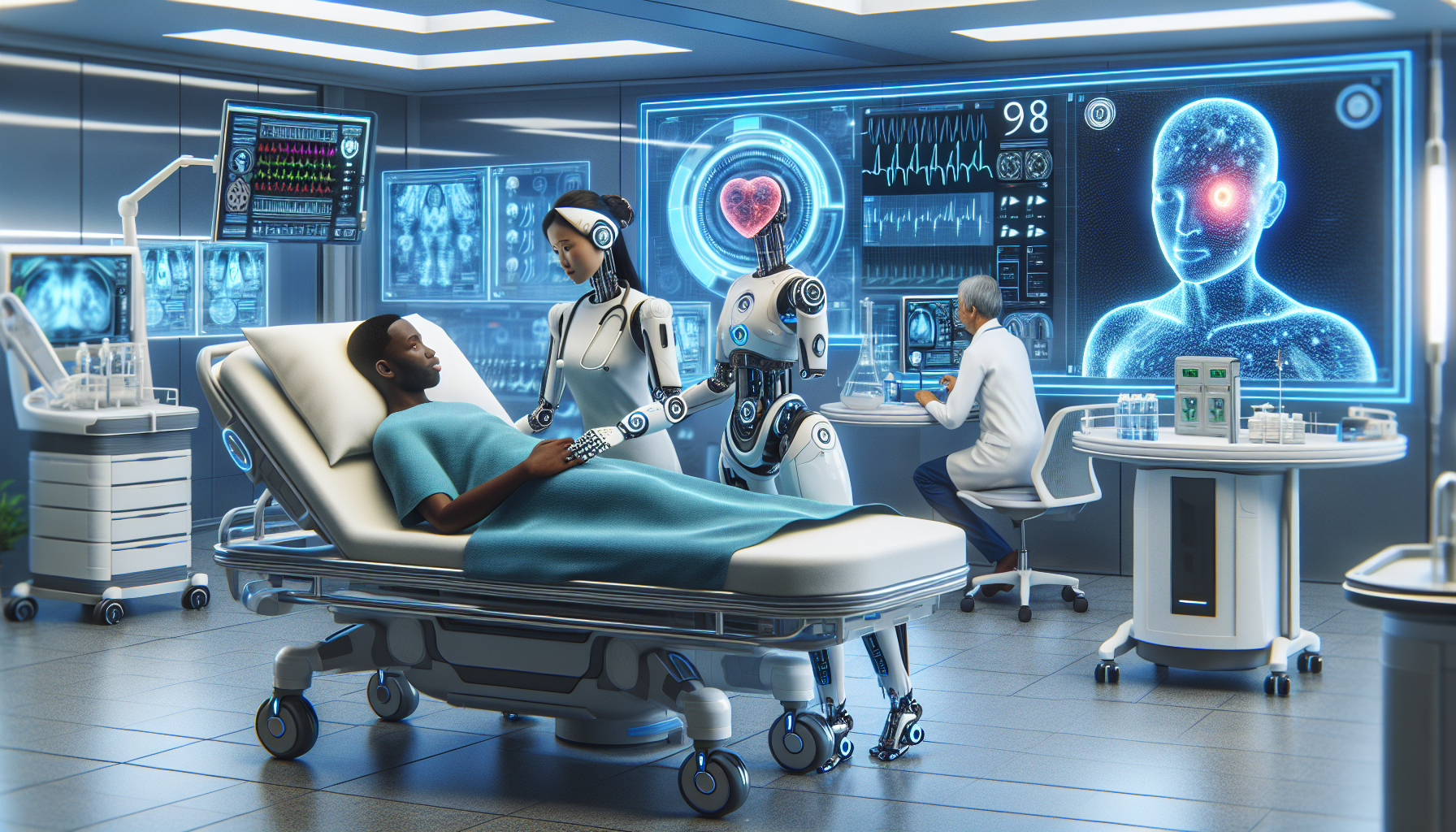The Role of AI in Patient Diagnosis
AI technologies are revolutionizing patient diagnosis through innovative imaging analysis and predictive analytics. Machine learning algorithms can process vast amounts of data from medical imaging – such as X-rays, MRIs, and CT scans – faster and often more accurately than human radiologists. For instance, AI systems can be trained to recognize patterns indicative of specific diseases, enabling earlier and more precise diagnoses. This not only decreases the likelihood of human error but also significantly improves the chances of successful treatment.
AI in Predictive Analytics
Predictive analytics using AI involves analyzing historical medical data to forecast patient outcomes. By utilizing vast datasets that track patient histories, AI can identify risk factors for diseases like diabetes or hypertension. Healthcare providers can leverage these insights to implement preventive measures tailored to individual patients, ultimately improving overall patient care and reducing long-term healthcare costs.
Enhancing Treatment Plans Through AI
Another critical aspect of AI automation in healthcare is the enhancement of treatment plans. AI can integrate data from various sources, including patient history, genetics, and current research, to suggest personalized treatment options. This level of customization is essential in fields such as oncology, where AI assists in developing targeted therapies based on a patient’s unique tumor markers.
Drug Development Revolution
AI’s capabilities extend into drug discovery and development, significantly reducing the time and cost associated with bringing new therapies to market. By simulating how different compounds interact with biological systems, AI can streamline the identification of viable candidates, thereby accelerating clinical trials. For instance, by using AI to analyze biological data, pharmaceutical companies can predict which drug formulations will work best, optimizing the development process.
Administrative Efficiency and Cost Reduction
AI also plays a pivotal role in enhancing administrative efficiency in healthcare systems. Automating routine tasks such as appointment scheduling, billing, and patient records management reduces the administrative burden on healthcare professionals. This efficiency minimizes human error and frees up medical staff to focus on patient-centered tasks, improving the overall quality of care.
Telemedicine and Remote Patient Monitoring
AI-powered telemedicine platforms enhance patient engagement through remote monitoring and virtual consultations. AI algorithms analyze data from wearables and home monitoring devices to alert healthcare providers to any significant changes in a patient’s condition. This capability is particularly valuable for managing chronic diseases, allowing for timely interventions that can prevent complications, thus reducing hospital visits.
Patient Engagement and Support Systems
AI-driven chatbots and virtual health assistants have emerged as vital tools for patient engagement. These systems provide immediate support by answering common queries, providing medication reminders, and guiding patients through their healthcare journeys. By enhancing communication between patients and healthcare providers, AI improves adherence to treatment plans and ensures that patients remain informed and empowered in their healthcare decisions.
Data Security and Ethical Considerations
As AI systems process sensitive patient data, ensuring data security becomes paramount. Healthcare organizations must implement robust cybersecurity measures to protect against data breaches. Additionally, ethical considerations surrounding AI in healthcare must be addressed. This includes ensuring biases in algorithms do not adversely impact patient care, necessitating transparency and fairness in AI model development.
Impact on Healthcare Workforce Dynamics
AI is reshaping the healthcare workforce, leading to a demand for new skills among healthcare professionals. As routine tasks become automated, the focus shifts toward roles that require critical thinking and emotional intelligence, such as patient interaction and complex decision-making. Training programs must adapt to prepare healthcare workers for this changing landscape, emphasizing the importance of human-AI collaboration.
Legal and Regulatory Frameworks
With the rise of AI in healthcare, legal and regulatory frameworks must evolve to address the unique challenges introduced by these technologies. Compliance with regulations such as HIPAA (Health Insurance Portability and Accountability Act) and GDPR (General Data Protection Regulation) becomes crucial, as these laws govern the privacy and security of patient data. Policymakers must ensure that regulations keep pace with technological advancements, promoting innovation while protecting patient rights.
Future of AI in Healthcare
The potential of AI in healthcare is vast, with ongoing advancements expected to transform various aspects of patient care and management. Research continues to explore areas such as natural language processing (NLP) for better patient data interpretation, enhancing clinical decision support systems, and refining telehealth technologies. As AI systems become more sophisticated, their integration into mainstream healthcare will likely increase, resulting in more efficient, personalized patient care.
Enhancing Medical Education
AI can also play a crucial role in enhancing medical education by providing case studies and simulations based on real patient data. Medical students can engage with AI-driven platforms that adapt to their learning styles and pace, creating a more individualized educational experience. This technology ensures that future healthcare professionals are well-equipped to navigate an increasingly technology-driven landscape.
Patient Safety Improvements
AI significantly contributes to improving patient safety through advanced monitoring systems that can identify adverse events before they occur. For instance, AI algorithms can analyze data from electronic health records to warn healthcare professionals of potential drug interactions or recognize the early signs of deteriorating health. By prioritizing patient safety, AI helps mitigate risks associated with hospital stays and treatments.
Conclusion
AI automation in healthcare is not just a trend; it represents a critical shift toward more efficient, accurate, and patient-centered care. This technological evolution promises to alleviate many challenges facing healthcare providers while enhancing patient outcomes. As the landscape of healthcare continues to evolve, the integration of AI will undoubtedly play a pivotal role in shaping the future of patient care and management.


